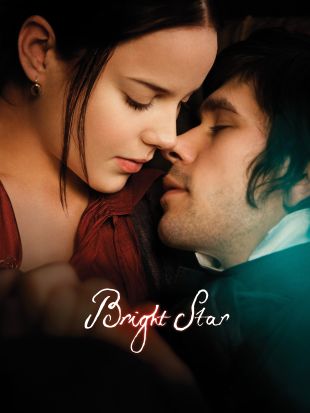
For a film about a love felt so passionately that it inspired some of the most romantic poems in the English language, Jane Campion's Bright Star has remarkably little passion in it. The movie tells the true story of Fanny Brawne (Abbie Cornish), a 23-year-old Londoner in 1818 whose independent streak manifests itself through an intense interest and love for fashion and dressmaking. Her neighbor, the struggling but gifted young poet John Keats (Ben Whishaw), underestimates her intelligence because he believes she's frivolous, and she, having no interest in literature, seems thoroughly disinterested in him. However, Fanny attempts to help the Keats family when John's brother becomes gravely ill, and in order to express his gratitude John agrees to teach her poetry -- leading Fanny and John to quickly fall deeply and profoundly in love with each other. Although they wish to wed, his lack of finances and his writing partner (Paul Schneider) -- who believes she is nothing more than an unwelcome distraction -- keep the two from marrying. This setup certainly recalls Merchant/Ivory and Masterpiece Theatre-style productions, but Jane Campion is far too idiosyncratic a director to serve up something that straightforward. Campion has often dealt with female characters who feel deeply but are either fearful of, or unable to understand, their powerful emotions -- The Piano, The Portrait of a Lady, and In the Cut each focus on these kinds of women. But Fanny stands in stark contrast to them -- she has no problem articulating her enthusiasms, and the reason she's drawn so forcefully to Keats is precisely because he's able to express those sentiments so deftly well. Sadly, even though her protagonists have no trouble asserting themselves, Jane Campion can't seem to tap into them as a filmmaker. She keeps the viewer at arm's length from the couple; we're left to observe them rather than connect with them. This distant quality douses our ability to share the fiery emotions burning up her leads. Unless you're moved to tears by Keats' poetry to begin with -- and the movie does serve up many examples of his greatness -- Campion doesn't do anything to help the viewer share her characters' intensity. The result is a boring film about fascinating people.
